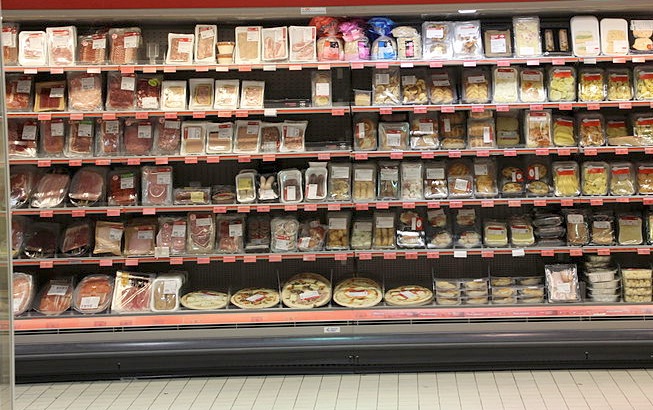
'Supermarket greed' is to blame for the horse meat scandal while farmers suffer as a result, according to the National Pig Association.
Traceability standards for beef products are the subject of debate as news emerged over the content of meat products in UK and Irish supermarkets.
The fear of eating contaminated beef has caused many shoppers to be wary of all meat sold in supermarkets.
The association has blamed retailers who 'habitually drive down meat prices' below the cost of production causing a lapse in quality or an adulterated content of the product.
"Where on earth do they think this cheap euromeat is coming from?" demanded Richard Longthorp, chairman of the NPA.
"If you consistently buy something below the price at which it can be produced, you must know that corners have been cut in quality, or safety, or legality, or all three."
The National Beef Association also raised the point of undervalued beef.
"At the moment we are led to believe that no one in the manufacturing process was aware of horse meat been sold as beef, it makes one wonder when the processors were purchasing this bargain beef raw material that no one thought how can we be getting this beef at such a bargain price?" the association queried.
"Beef is expensive to produce and expensive to process but most mainstream supermarkets discount beef products" said Oisin Murnion, chairman of the National Beef Association.
Findus is the latest company to be caught up in the controversy surrounding contamination of meat products, which has affected companies in the UK, Irish Republic, Poland and France.
Farming groups said supermarkets 'have only themselves to blame for the current lack of customer trust' in the meat products.
"Even though cheap imported europork hasn't been implicated in the Horsegate scandal, the price that British pig farmers get for their safe, high-quality product plummeted by an unprecedented 3p a kilo on Friday," said NPA general manager Dr Zoe Davies.
"Our pig farmers are already making a loss as supermarkets import increasing quantities of cheap pork from the continent and for some this latest blow may well be the straw that breaks the camel’s back."
"But that’s not good enough for some of our largest retailers. They have to buy cheap-cheap-cheap, and that is what has landed the High Street in its current fear and confusion."
Over 90 percent of British pork is independently audited through the Red Tractor assurance scheme along its entire production process, from the feed that the pigs eat, to the way they are housed and cared for, to the way they are electronically-tracked to meat plants, and to the way the meat is processed, packed and labeled.
"Shoppers can no longer trust many supermarkets but they can trust British meat."
"Our members are rightly angry and concerned with the recent developments relating to contaminated processed meat products" said NFU President Peter Kendall.
"The contamination took place post farm gate which farmers have no control over."
"This has never been a farming issue but it is certainly an issue that farmers will be taking extremely seriously."
"We are concerned about the ramifications for the industry as a whole which is why we are meeting with retailers, food service companies, processors, as well as the FSA and Defra, to establish the facts and seek reassurance that the integrity of British food is maintained."
Recent events show that guaranteed origin, and full product integrity emerged as the key to higher earnings.
Oisin Murnion said: "The horsemeat scandal is a classic example of what happens when supermarket suppliers are squeezed in cost terms and consumers are encouraged to believe that beef, which they like and love to buy, is just as cheap as chicken or other less expensive meats."
Ten million beef burgers were withdrawn from sale in Ireland the UK last month.
Cross-border meat suppliers
Farmers and consumers have been urged to work together to prevent further cheating by cross-border meat suppliers who have substituted beef with cheap, unregulated horse meat.
"This can be done if consumers insist that the fresh beef and manufactured beef they buy is taken exclusively from cattle born, reared, and processed in the UK," explained NBA national director Chris Mallon.
"The integrity of their product contrasts hugely with the horsemeat which that has infiltrated the domestic food chain as a result of careless, or unscrupulous, actions undertaken by participants in a supply chain which is understood to cover companies in Poland, Luxembourg, Romania, France and the Republic of Ireland."
Retailers have been criticised over their scrutiny of the product as well as the price they pay for the meat.
They are 'in danger of losing their reputations' if more meat products have to be withdrawn according to Mallon.
"This disappoints us because some retailers, as well as some of their suppliers, have quite obviously been too relaxed about the origin, even the species, of some of the meat in their processed products and beef farmers believe the multiples can help restore consumer faith in their judgement if they make more effort to highlight the origin, and superior integrity, of domestic beef, and domestically manufactured beef products."
